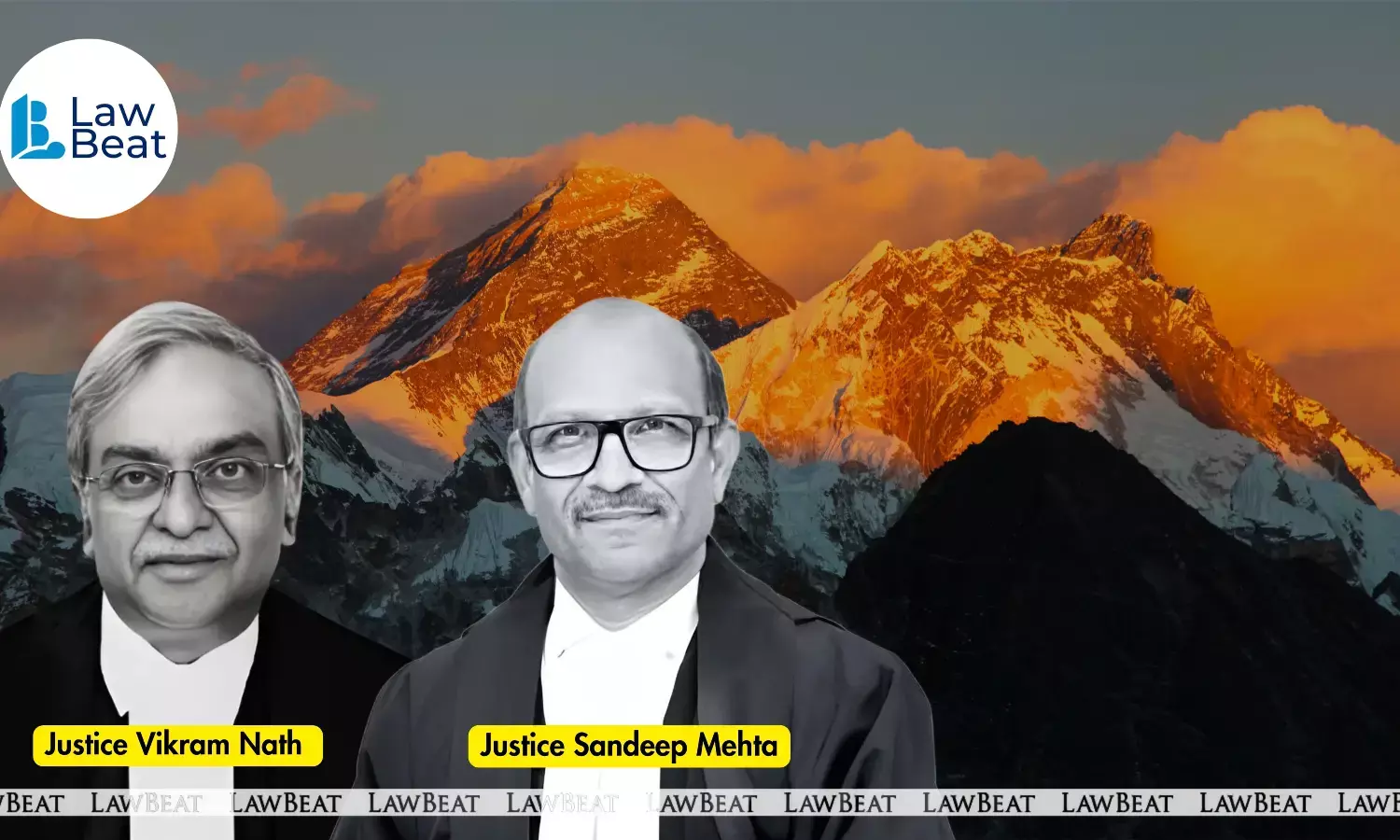Himachal Ecological Crisis: SC Seeks Detailed Report on Zoning, Deforestation, Hydropower Projects & Climate Change Policy

Bench headed by Justices Vikram Nath and Sandeep Mehta directs State to file affidavit addressing ecological and environmental concerns
The Supreme Court has directed the Himachal Pradesh Government to furnish a detailed response on critical issues of environmental degradation, deforestation, hydropower projects, climate change, and unregulated construction in the fragile Himalayan ecosystem.
The directions came in a suo motu writ petition registered to examine the ecological crisis following the devastating monsoon floods and landslides this year that claimed lives and destroyed thousands of homes.
The matter is being heard by a Bench comprising Justice Vikram Nath and Justice Sandeep Mehta, which, on August 25, 2025, had taken cognisance of the unprecedented destruction caused by heavy rainfall in Himachal Pradesh.
The Court noted that recurring landslides, collapsing houses, road subsidence, and other calamities are not merely natural occurrences but a result of unchecked human and developmental activities such as hydropower projects, four-lane road construction, rampant deforestation, and unregulated multi-storey buildings.
In its August 25 order, the Court had appointed Senior Advocate K. Parameshwar as amicus curiae, assisted by Advocate Akashi Lodha, to analyse the State’s interim report. Following a detailed study, the amicus submitted an exhaustive questionnaire highlighting areas that require urgent clarification and accountability from the State.
The questions cover a wide spectrum of ecological concerns, including:
1. Zoning and Protected Areas: The State must explain whether zoning is based on seismic activity, landslide vulnerability, or eco-sensitivity. The court has sought details of eco-sensitive zones, reserved forests, wildlife sanctuaries, and statutory restrictions on industrialisation in such areas.
2. Deforestation and Tree Cover: Himachal Pradesh has been asked to disclose the total forest area diverted for non-forest use over the last two decades, changes in tree and forest cover district-wise, and details of any surveys on green cover loss. The court also demanded records of permissions granted for large-scale tree felling and prosecutions for illegal logging.
3. Compensatory Afforestation: The State must provide year-wise data on trees planted by government bodies, PSUs, and private entities as compensatory measures, the survival rate of these plantations, and utilisation of allocated funds over the past twenty years.
4. Climate Change: The Bench directed Himachal Pradesh to place on record whether it has a climate change policy, studies on the impact of global warming, details of glacier retreat assessments, and functioning of the State Knowledge Cell on Climate Change.
5. Disaster Management: The court sought details of district and state-level disaster management plans, funds allocated and utilised in the last two decades, and surveys conducted to identify areas prone to water shortages.
6. Roads and Landslides: The State must furnish statistics on National and State Highways, especially four-lane projects, landslides occurring on these routes over the last decade, and corrective measures adopted.
7. Hydropower Projects: Comprehensive data on rivers with operational hydropower projects, their commencement dates, cumulative environmental impact studies, and pending proposals for new projects have been sought.
8. Mining and Heavy Machinery: The affidavit must detail ongoing and pending mining leases, use of explosives and heavy machinery, and protocols for regulating such activities.
9. Tourism and Construction: The State must explain measures to regulate tourist inflow during peak monsoons, restrictions on multi-storey buildings in eco-sensitive areas, prosecutions under the Himachal Pradesh Town and Country Planning Act, 1977 for illegal constructions, and policies for balancing tourism with ecology.
The Bench observed that these responses are crucial for framing guidelines to safeguard both citizens and the fragile Himalayan ecosystem. The affidavit must be filed by the Principal Secretary, Department of Forests, Himachal Pradesh, with a copy to the amicus curiae before the next hearing.
The case will be taken up again on October 28, 2025.
It is to be noted that on September 15, the Bench had reserved order in the suo moto PIL.
The Court had underscored that despite Himachal Pradesh’s designation as a major hydroelectric power hub, the cumulative impact of unscientific construction, blasting for tunnels, and diversion of rivers has made the terrain highly vulnerable to disasters and climate change.
Case Title: In Re: Issues Relating to Ecology and Environmental Conditions Prevailing in the State of Himachal Pradesh
Order Date: September 23, 2025
Bench: Justice Vikram Nath and Justice Sandeep Mehta
